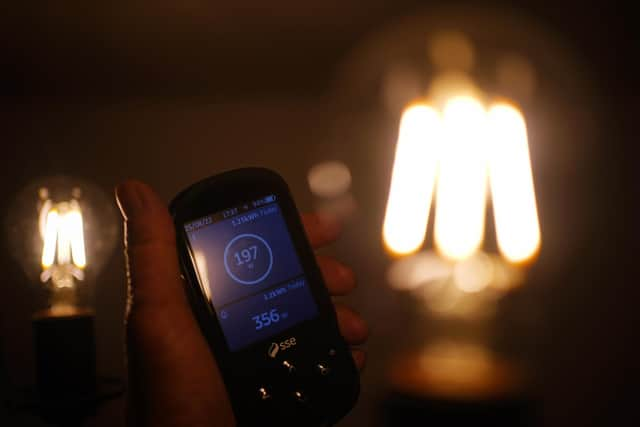How the country fell behind when it comes to energy security - Andrew Brown
So why didn’t the country invest in good time to help more people reduce their need to buy expensive energy? After all, every time someone invests in improving energy efficiency it cuts demand for power and helps drive down bills for others.
Instead of acting with foresight there has been an astonishing failure to do even the easy and simple things to reduce energy demand and cut costs. Across Yorkshire we have seen thousands of new homes built during the last ten years. Very few of them were equipped with solar panels.
Advertisement
Hide AdAdvertisement
Hide AdMany schools, hospitals, businesses and care homes provide excellent opportunities to install energy saving, energy storing and local low cost energy generating measures. Instead of being helped to take advantage of that opportunity they are now facing crippling bills.


A serious package of incentives to reduce use of energy is the quickest and cheapest escape route from hefty bills. Generating power by cheap renewable energy alternatives is the next best way.
In 2020 wind power generated 24 per cent of UK energy needs. Offshore wind farm operators have sold power for under £40 per megawatt hour. The current standard forward supply price is £400.
Worries about erratic supply can be dealt with by combining windpower with increased battery storage so that supply is evened out and this highly affordable solution becomes massively more dependable.
Advertisement
Hide AdAdvertisement
Hide AdThe 165 turbines of the huge new Hornsea 2 facility off the coast of Yorkshire created high quality jobs in Hull and every turn of one of the 81 metre long blades can power a house for a day.
It takes time to plan and develop a wind farm but nothing like as long as it takes to develop a new fracking site in Yorkshire and the hidden costs are a lot lower. Fracking requires huge quantities of high pressure water and chemicals to be pumped underground. Because of the complex fault ridden geology of Yorkshire no one can ever know for certain where the polluted water will end up.
It is also not quick or easy to develop an oil or gas rig in the North Sea.
An obsession with solutions based on large scale supply instead of local smaller scale generation and reduced consumption has seen us sleep walk into a crisis that could have been avoided.
Advertisement
Hide AdAdvertisement
Hide AdBy contrast most of the old fossilised technology depends on long and complex supply chains that can be easily disrupted and on facilities that are under the control of a few large corporations and a few very unpleasant states.
During this crisis those controllers of our supply have rarely taken the opportunity to even out the price hike and to help out their struggling customers.
Large corporations have widened their margins and made their biggest profits in decades. Government subsidies have had a nasty tendency to disappear into that black hole of corporate price rises.
That is why the latest measures which are being proposed to help out struggling consumers are so very badly designed. Help needs to be targeted at those who need it most.
Andrew Brown is a Craven District councillor representing Aire Valley with Lothersdale and the North Yorkshire councillor for Aire Valley.